Abstract
Interview data from parents of 201 children under age 7 years with severe feeding and eating difficulties were analysed to describe features in the child's and parents' experiences that may have contributed to the development of the eating problem. Prematurity and low birth weight, distress during feeding in the first six months of life, and regular or frequent vomiting were common findings in the histories of the children. Aversive experiences during feeding may be the basis for early childhood eating difficulties.
Full text
PDF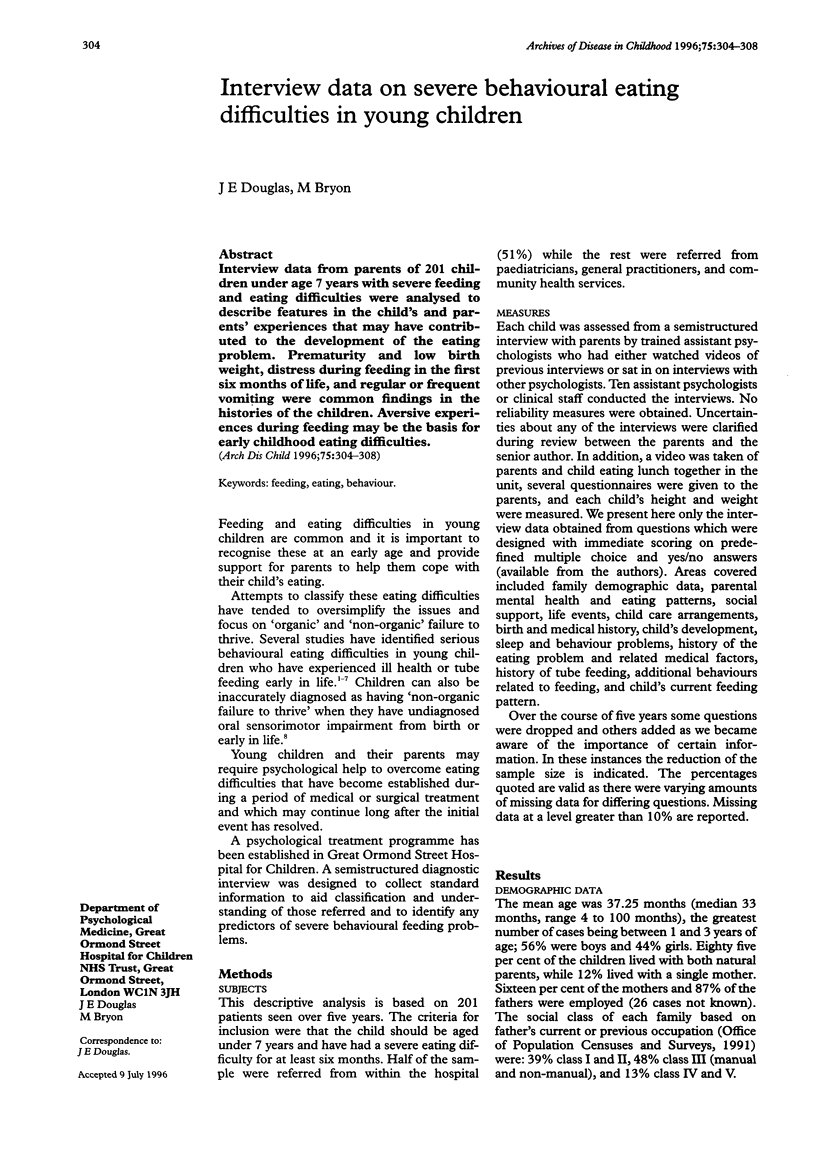
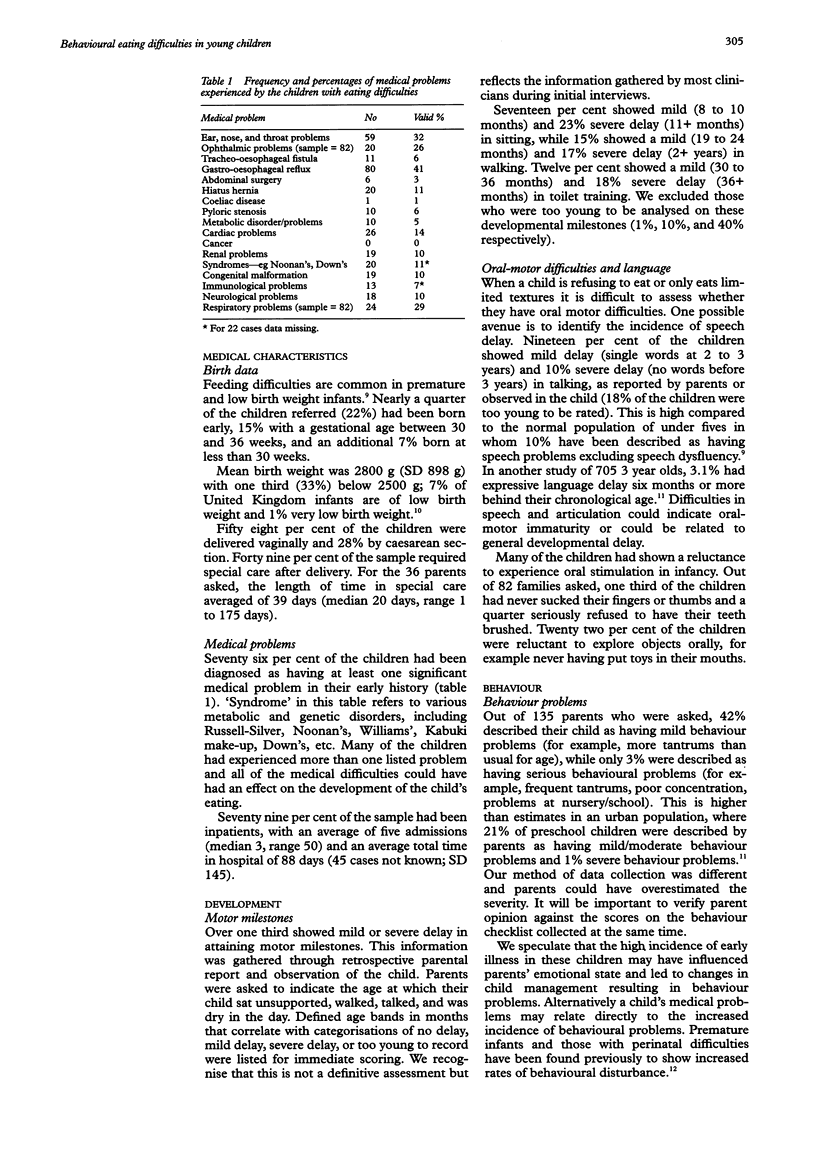
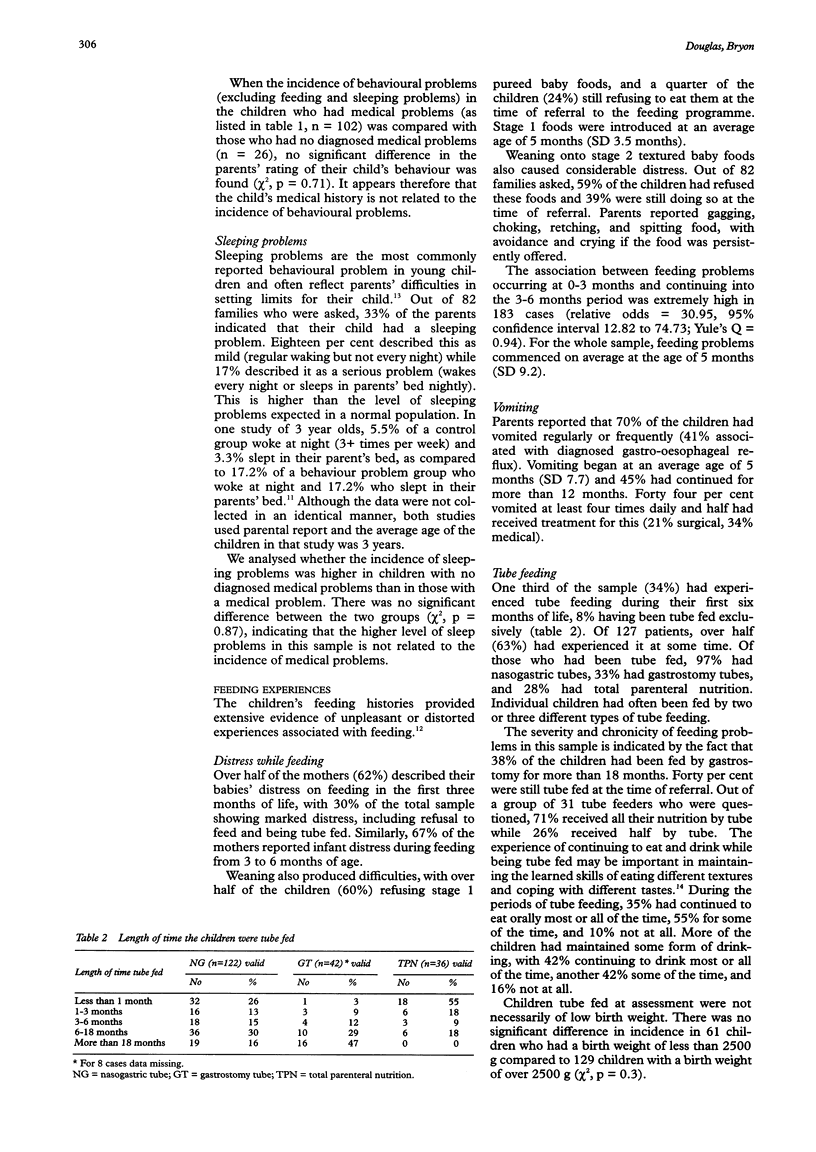
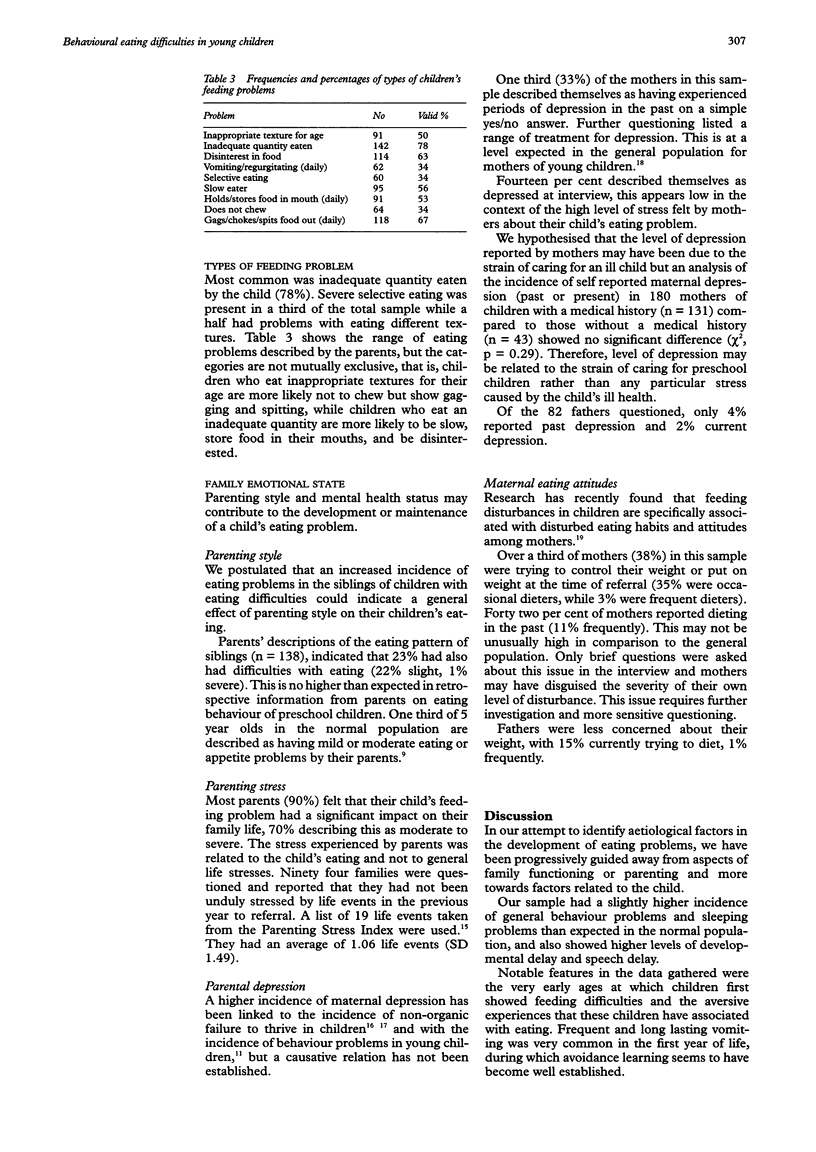
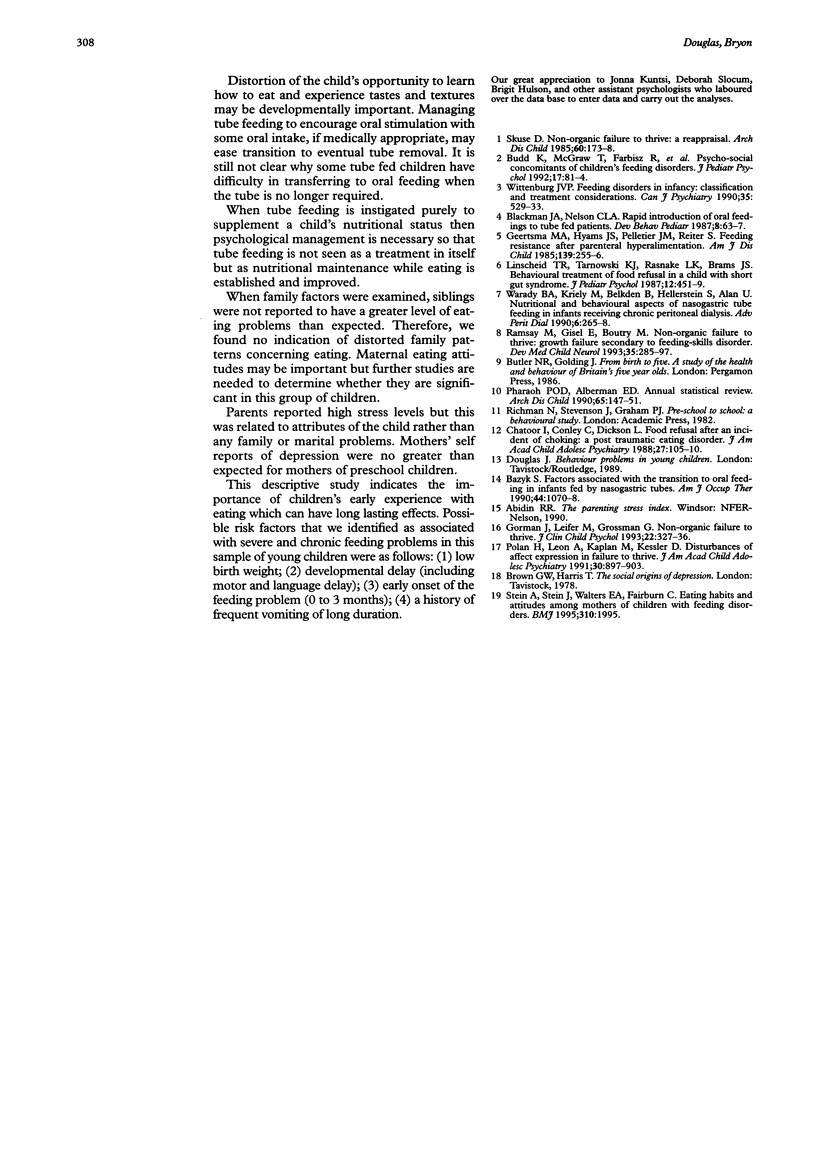
Selected References
These references are in PubMed. This may not be the complete list of references from this article.
- Bazyk S. Factors associated with the transition to oral feeding in infants fed by nasogastric tubes. Am J Occup Ther. 1990 Dec;44(12):1070–1078. doi: 10.5014/ajot.44.12.1070. [DOI] [PubMed] [Google Scholar]
- Blackman J. A., Nelson C. L. Rapid introduction of oral feedings to tube-fed patients. J Dev Behav Pediatr. 1987 Apr;8(2):63–67. [PubMed] [Google Scholar]
- Budd K. S., McGraw T. E., Farbisz R., Murphy T. B., Hawkins D., Heilman N., Werle M., Hochstadt N. J. Psychosocial concomitants of children's feeding disorders. J Pediatr Psychol. 1992 Feb;17(1):81–94. doi: 10.1093/jpepsy/17.1.81. [DOI] [PubMed] [Google Scholar]
- Chatoor I., Conley C., Dickson L. Food refusal after an incident of choking: a posttraumatic eating disorder. J Am Acad Child Adolesc Psychiatry. 1988 Jan;27(1):105–110. doi: 10.1097/00004583-198801000-00016. [DOI] [PubMed] [Google Scholar]
- Geertsma M. A., Hyams J. S., Pelletier J. M., Reiter S. Feeding resistance after parenteral hyperalimentation. Am J Dis Child. 1985 Mar;139(3):255–256. doi: 10.1001/archpedi.1985.02140050049020. [DOI] [PubMed] [Google Scholar]
- Linscheid T. R., Tarnowski K. J., Rasnake L. K., Brams J. S. Behavioral treatment of food refusal in a child with short-gut syndrome. J Pediatr Psychol. 1987 Sep;12(3):451–459. doi: 10.1093/jpepsy/12.3.451. [DOI] [PubMed] [Google Scholar]
- Pharoah P. O., Alberman E. D. Annual statistical review. Arch Dis Child. 1990 Jan;65(1):147–151. doi: 10.1136/adc.65.1.147. [DOI] [PMC free article] [PubMed] [Google Scholar]
- Polan H. J., Leon A., Kaplan M. D., Kessler D. B., Stern D. N., Ward M. J. Disturbances of affect expression in failure-to-thrive. J Am Acad Child Adolesc Psychiatry. 1991 Nov;30(6):897–903. doi: 10.1097/00004583-199111000-00006. [DOI] [PubMed] [Google Scholar]
- Ramsay M., Gisel E. G., Boutry M. Non-organic failure to thrive: growth failure secondary to feeding-skills disorder. Dev Med Child Neurol. 1993 Apr;35(4):285–297. doi: 10.1111/j.1469-8749.1993.tb11640.x. [DOI] [PubMed] [Google Scholar]
- Skuse D. H. Non-organic failure to thrive: a reappraisal. Arch Dis Child. 1985 Feb;60(2):173–178. doi: 10.1136/adc.60.2.173. [DOI] [PMC free article] [PubMed] [Google Scholar]
- Warady B. A., Kriley M., Belden B., Hellerstein S., Alan U. Nutritional and behavioural aspects of nasogastric tube feeding in infants receiving chronic peritoneal dialysis. Adv Perit Dial. 1990;6:265–268. [PubMed] [Google Scholar]
- Wittenberg J. V. Feeding disorders in infancy: classification and treatment considerations. Can J Psychiatry. 1990 Aug;35(6):529–533. doi: 10.1177/070674379003500611. [DOI] [PubMed] [Google Scholar]


